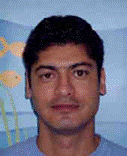Project Partners
 |
THE MARINE BIOLOGICAL ASSOCIATION (http://www.mba.ac.uk/) |
Representatives:
|
The Marine Biological Association (MBA) is a Learned Society and one of the UK’s leading marine biological research institutes. Our mission is to promote scientific research into all aspects of life in the sea and to disseminate to the public the knowledge gained. The MBA was founded in 1884 and in 1888 opened the Plymouth Laboratory at Citadel Hill. The MBA has earned an international reputation for excellence and innovation in research, by the resident scientific staff and visiting research workers, including seven Nobel laureates. The laboratory in Plymouth has provided facilities since 1888 for in-house and visiting researchers. Some of the earliest research at Plymouth was to identify the marine life present in the area. Those surveys now provide valuable data against which to identify how the sea has changed in relation to impacts. The MBA now supports a wide range of research activities from cell and molecular research to understanding ecosystem structure and functioning.
The current research programme reflects the wide-ranging commitment of the Association to the development of marine biology. This covers areas as diverse as cell and developmental biology, neurobiology, physiology and functional biology, reproductive biology and ocean productivity and phytoplankton dynamics. A range of algal and invertebrate species are utilised to investigate fundamental biological problems. Long-term studies of the biology of the English Channel have been supported for more than seventy years and the Association has been instrumental in establishing The Sir Alister Hardy Foundation for Ocean Science (SAHFOS) to continue the sequence of continuous plankton recorder surveys in the North Atlantic and North Sea.
The Marine Biological Association hosts The Plymouth Culture Collection of Marine Micro- Algae (PACC). The PACC operates as a research facility, offering specialist help in isolation, culture and maintenance of marine microalgae, not only for Plymouth researchers but also for the wider international marine scientific community. The Collection distributes approximately 400 culture strains per year: ~50% to Plymouth researchers and the other 50% to national and international academic institutes and commercial users.
The Plymouth Algal Culture Collection advises commercial organisations on suitability of strains and culture conditions required for specific strains. We can screen individual strains for overall lipid content and provide information on growth rates of individual strains. During 2009 we organised a successful international course on identification and culture of marine microalgae.

